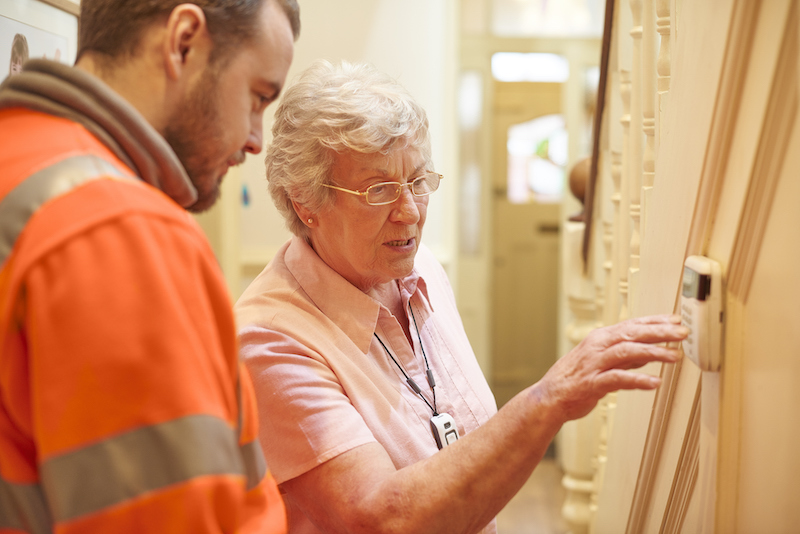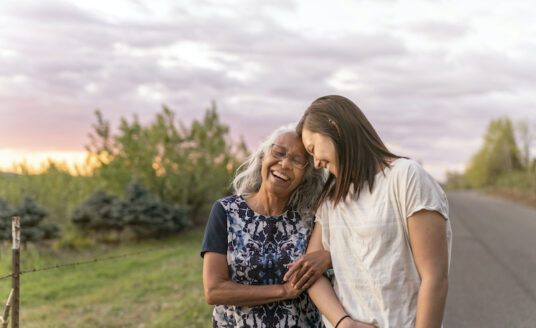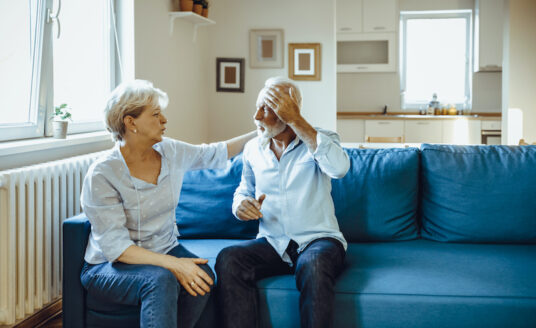If you are like most seniors, you want to live in your home (also known as “aging in place”) for as long as you are able. The question becomes how to do that safely. Aging eventually diminishes strength, balance, eyesight, and memory, which adversely affect a senior’s ability to safely perform the activities of daily living. Below are some of the most common “senior” accidents and ways to prevent them from occurring.
Falls
Falls are the most common senior home accident. Nearly one in four seniors are injured in falls each year, according to the Centers for Disease Control and Prevention. Unsteadiness caused by medications can contribute to falls, as well as obstacles in the home such as rugs, frayed carpet, furniture, exposed electrical cords on floors, and doors that are left open and block walkways.
Historically, the most dangerous room in the house is the bathroom; a room that is frequently wet and constructed with hard, slippery surfaces in a relatively small area. Two-thirds of bathroom injuries occur in the tub or shower. Here is what can be done to make the bathroom safer.
Bathroom Fall Prevention
- Install grab bars inside the shower or tub area and next to the toilet.
- Use a bath transfer bench to move into the tub.
- Sit on a shower chair inside the shower.
- Use a handheld shower head.
- Place non-slip mats inside and outside the tub.
- Place toiletries within easy reach.
- Clear the path to the bathroom.
- Install lever faucets that are easier to turn.
- Wear a life-alert pendant.
- Set hot water heater temperature no higher than 120 degrees.
Fall Prevention in Other Rooms
- Install handrails in stairways.
- Clear all clutter.
- Arrange furniture to create walking space.
- Immediately clean up spills.
- Don’t stand on furniture to reach for items.
- Keep walking aids close by.
- Close closet doors and drawers.
- Have a flashlight within reach and a nightlight in your bedroom.
- Check with your doctor if medications are making you wobbly.
Get Fit to Avoid Falls
A good way to prevent falls is to increase your physical ability and strength. Even mild exercise involving movement can help. Walking and balance exercises are a good place to start. Physical and occupational therapists can provide therapy and instruction to improve your ability to move safely about your home and perform tasks.
Get Help to Prevent Falls
It is particularly important to access therapy and, perhaps, the assistance of a home health aide, if you have just finished a stay in the hospital and are experiencing weakness or residual pain.
Winter Hazards
Ice, snow, and cold weather provide numerous challenges to senior home safety.
When snow falls, it may be tempting to grab a shovel and clear your steps or walkways. Snow and ice are hazards for anyone, but the consequences of falls are more serious for seniors. If you have a compromised immune system, problems with balance, or a heart condition, you are asking for serious trouble by attempting the job yourself. Let a younger caregiver or neighbor take over the shoveling duties.
If your home is heated by a wood-burning stove or fireplace, make sure chimneys and flues are inspected annually to reduce the risk of fire. Space heaters should be checked for frayed cords and placed no closer than three feet from anything that might catch fire.
Make sure you have working smoke and carbon monoxide detectors in the home.
Know where your breaker box is located, and keep a flashlight nearby with fresh batteries in case of a power outage.
As the body ages, it is less resistant to the effects of the cold. In addition, it is more difficult for seniors to detect when they are dangerously cold, so keep the house temperature at a minimum of 68 degrees.
Also, keep an adequate stock of groceries and all medications on hand so that you do not have to make a trip in bad weather to the grocery store or pharmacy. If necessary, have a caregiver, friend or neighbor run errands for you if walking and driving conditions are questionable.
Kitchen Concerns
Two major potentials for harm to seniors are found in the kitchen: fire and food poisoning.
Statistics show that seniors are far more likely to be seriously injured by fire in the kitchen than any other age group due to physical and or cognitive impairment. Also, the inability to react quickly which may also be caused by medications increases the risk of injury.
Avoiding Fire Hazards
- Don’t leave food unattended while cooking.
- Use long oven mitts to protect your arms.
- Install a smoke detector in the kitchen.
- Do not wear loose-fitting clothing while cooking, which could ignite near a burner.
- Clean up stove spills of fat, grease, or oil that may ignite.
- Use pots with two handles to make moving them easier.
- Make sure a fire extinguisher is nearby.
- Use unbreakable containers.
The second kitchen hazard is food-borne illnesses. Diminishing vision may make checking freshness dates difficult, and product labels can be confusing. Caregivers can assist by tagging food containers with large, readable letters that indicate when food should be thrown out. Also, keep the refrigerator temperature at 40 degrees to prolong shelf life.
More Senior Home Safety
A senior health professional or care manager can visit your home to assess safety hazards and make recommendations that will reduce the risk of injury. Home health professionals are able to provide information concerning home safety as well. Also, there are certified aging-in-place specialists who understand home remodeling needs for seniors and can advise on renovations and products that are available for seniors aging in place.
If you or your senior loved one is aging in place, it’s important to make sure you’re in a senior-friendly environment. If you need extra assistance, give Bethesda a call. Our team of dedicated senior care professionals and Care Management team can make aging in place easier. We hope these tips have been helpful, and for more senior home safety tips, visit our blog.
| Whether in independent living, assisted living, memory care, or skilled nursing, Bethesda offers the right amenities, services, programming, and staff to make every day full of purpose. See for yourself and tour our independent living communities, including Bethesda Barclay House – Clayton, Bethesda Gardens – Kirkwood, Bethesda Orchard – Webster Groves, Bethesda Terrace – South County, Village North Retirement Community – Florissant, and The Oaks at Bethesda Villas – Kirkwood/Webster. |
Want to find out more?
If you’d like to stay up to date with Bethesda Health Group, sign up here to receive our blog and newsletters!
"*" indicates required fields
Related Articles
Want to find out more?
If you’d like to stay up to date with Bethesda Health Group, sign up here to receive our blog and newsletters!
"*" indicates required fields



